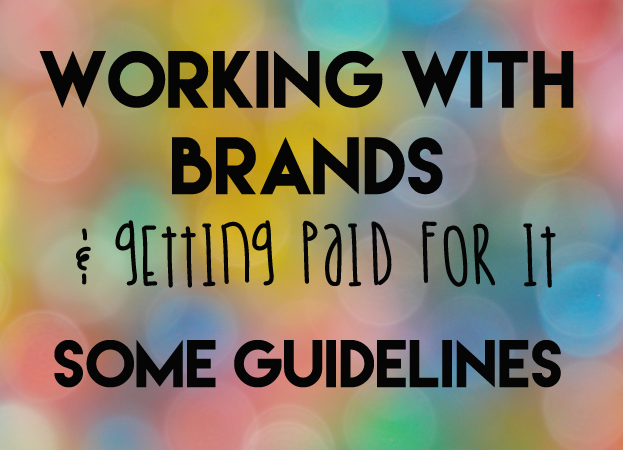So, a brand has approached you? That’s great! If they genuinely like your work and you feel that what they are offering is in-line with your blog and what your readers would like to see – then go for it! However when we move into brands offering to pay big bucks for you to promote their products, it starts to get a bit tricky…
There’s been some interesting news this week involving vloggers and the rules and regulations around being paid by brands to promote their products in video format. Some new guidelines have been introduced to keep things fair, and to help set a standard when promoting products through bloggers.
The Advertising Standards Authority was notified that several UK vloggers had been paid to promote Oreos in their recent posts, and had not marked these clearly as advertisements. It’s now been ruled by the ASA that these videos can’t be on YouTube unless they are marked clearly as ads.
Be clear and upfront
So, to break down the new guidelines, it’s absolutely fine to accept payment from brands for promoting a product. However, if you have accepted payment you need to clearly state that what your viewer is about to see is a promotion or an ad for the product by either stating this upfront in the title of the video, or using a symbol in the thumbnail of the video. This is because when a company pays money for a produced piece of promotion, this becomes advertising, and the rules state that we must tell people when they are being shown an advertisement.
This has been a bit of a grey area for some time, so don’t think of this as the Advertising Standards Authority trying to crack down on vloggers or to stop you working with brands. Instead it’s quite positive that there’s now an established set of rules that you need to abide by when putting up a video for which you’ve been paid for.
Working with brands
So if you are approached by a brand to work with your blog, don’t be put off by regulations, just remember that being clear is the best thing you can do if you’re going to accept a form of payment from the company. If you’re a food blogger and a restaurant has offered to pay for your meal, think about putting a small disclaimer at the bottom of your post to notify your readers that the post and the meal was paid for by the restaurant. If you’re a vlogger and you’ve been paid to promote a product in a video then make sure it is clear in your post that this is the case. Reviewing products or services out of your own pocket is just that, it is not paid for by the organisation who is benefitting from the review, therefore you don’t need to make it clear that your post is an advertisement.
What do you think of the new guidelines? Let us know in the comments below!


Thanks for drawing this to our attention. I welcome the guidelines as it’s good to know where we stand and anything that raises blogging standards is a good thing, in my opinion.
http://Www.youniqueproducts.com/dianekalnitz I am interested in growing my business and learning how to blog it